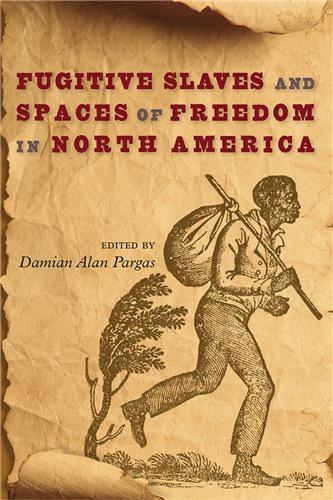New from the University of Florida Press:
Fugitive Slaves and Spaces of Freedom in North America (Sept. 2018), edited by
Damian Alan Pargas (Leiden University). A description from the Press:

This volume introduces a new way to study the experiences of runaway slaves by defining different “spaces of freedom” they inhabited. It also provides a groundbreaking continental view of fugitive slave migration, moving beyond the usual regional or national approaches to explore locations in Canada, the U.S. North and South, Mexico, and the Caribbean. Using newspapers, advertisements, and new demographic data, contributors show how events like the Revolutionary War and westward expansion shaped the slave experience.
Contributors investigate sites of formal freedom, where slavery was abolished and refugees were legally free, to determine the extent to which fugitive slaves experienced freedom in places like Canada while still being subject to racism. In sites of semiformal freedom, as in the northern United States, fugitives’ claims to freedom were precarious because state abolition laws conflicted with federal fugitive slave laws. Contributors show how local committees strategized to interfere with the work of slave catchers to protect refugees. Sites of informal freedom were created within the slaveholding South, where runaways who felt relocating to distant destinations was too risky formed maroon communities or attempted to blend in with free black populations. These individuals procured false documents or changed their names to avoid detection and pass as free.
The essays discuss slaves’ motivations for choosing these destinations, the social networks that supported their plans, what it was like to settle in their new societies, and how slave flight impacted broader debates about slavery. This volume redraws the map of escape and emancipation during this period, emphasizing the importance of place in defining the meaning and extent of freedom.
From an advance review:
“This anthology is the first to make a conceptual distinction between formal, semiformal, and informal freedom of runaway slaves and the first to examine the plight of fugitives in a broad continental perspective.”—Loren Schweninger
More information, including the Table of Contents, is available
here.
